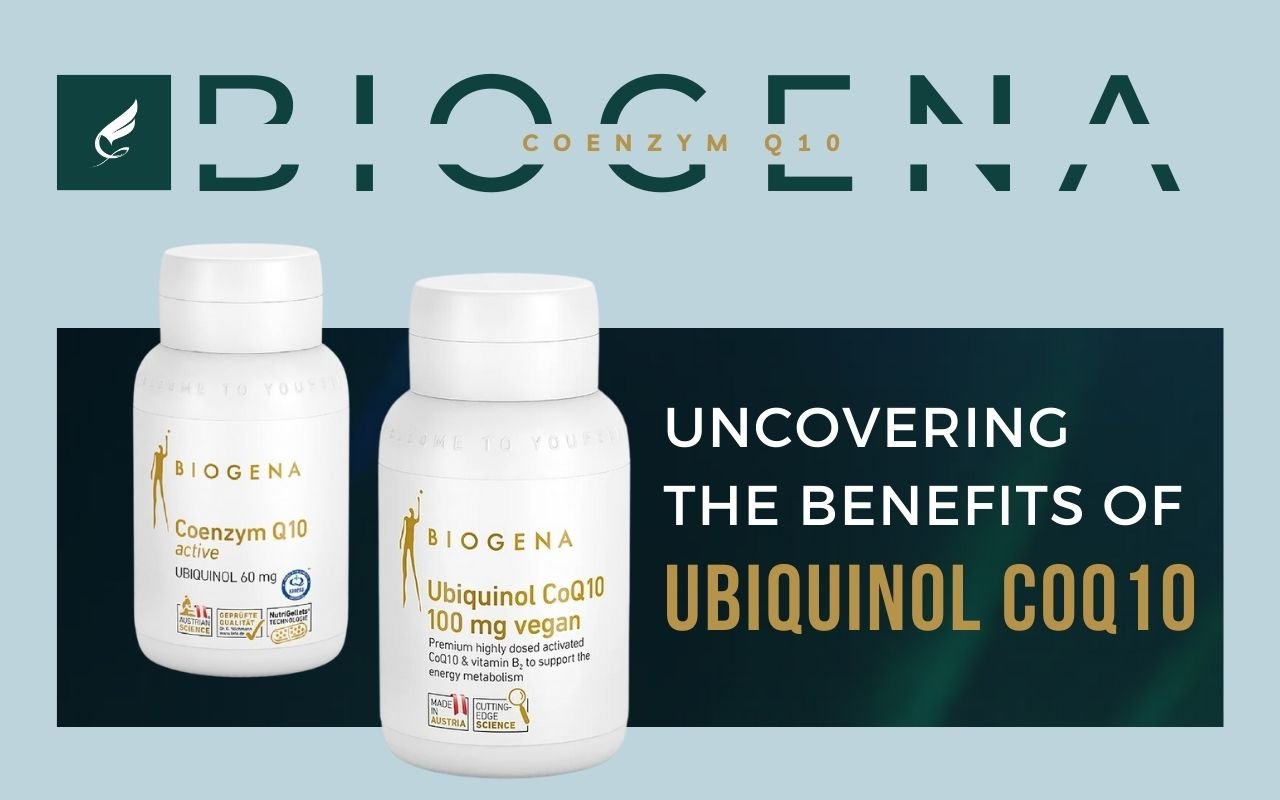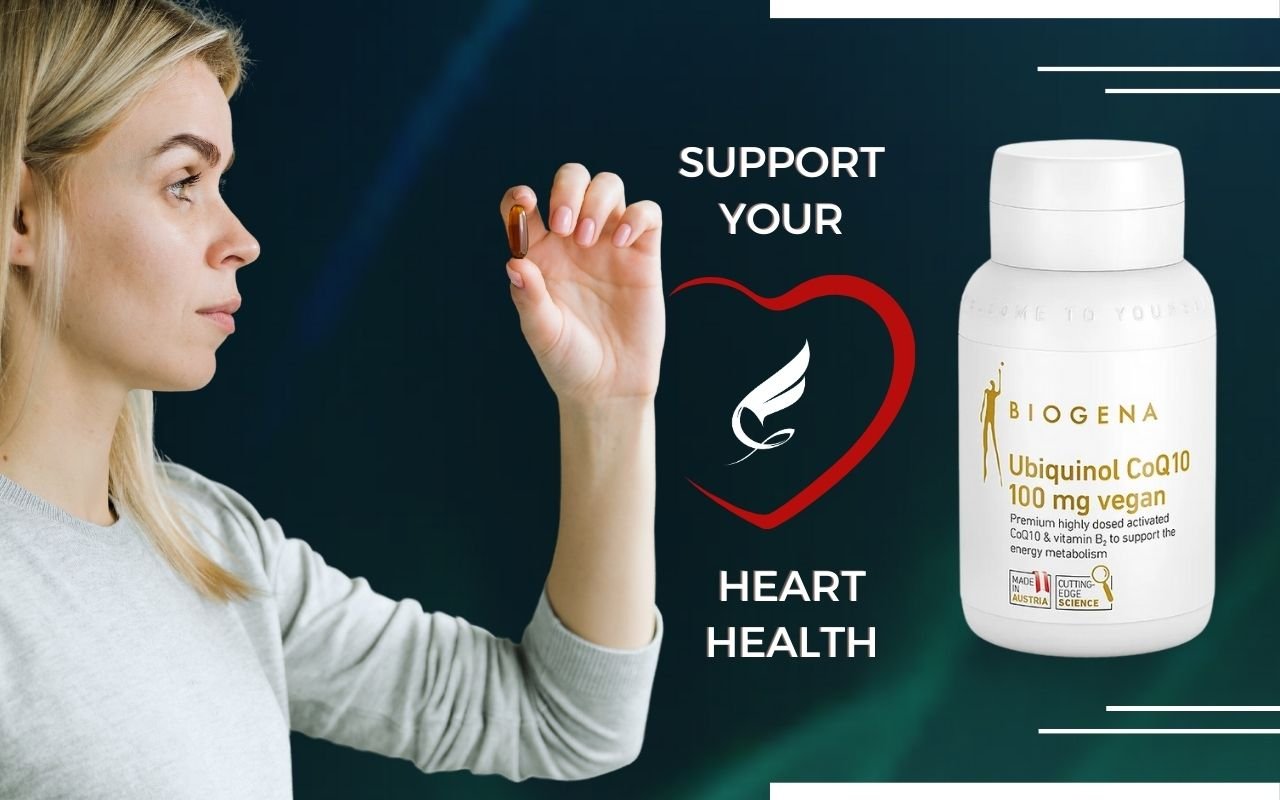Ubiquinol CoQ10: Comprehensive Guide to Its Benefits and Uses
Ubiquinol CoQ10 is a potent antioxidant that plays a vital role in energy production within our cells. But its benefits extend far beyond just boosting energy levels. In this comprehensive guide, we'll explore the remarkable health advantages of Ubiquinol CoQ10, from supporting heart health and fertility to enhancing athletic performance and healthy aging.
Key Takeaways:
Unlock Your Body's Potential: Ubiquinol CoQ10, the active form of coenzyme Q10, offers many health benefits, including supporting heart health, regulating blood sugar levels, and providing powerful antioxidant protection.
Scientifically Proven Benefits: Clinical studies have validated the efficacy of Ubiquinol CoQ10 in promoting heart health, aiding in diabetes management, enhancing fertility, and protecting against oxidative stress.
Ubiquinol CoQ10: The Active Antioxidant for Cellular Energy
Ubiquinol CoQ10 is the active form of coenzyme Q10, a vitamin-like substance crucial for cellular energy production in every cell of your body. It plays a pivotal role in generating adenosine triphosphate (ATP), the primary energy currency of cells, ensuring optimal bodily function. Additionally, ubiquinol acts as a potent antioxidant, shielding your cells from damage caused by free radicals and oxidative stress.
CoQ10 exists in two forms: ubiquinol and ubiquinone. While both offer benefits, ubiquinol stands out as the more bioavailable form, meaning your body can absorb and utilize it more readily. This distinction becomes increasingly important with age as our body's natural ability to convert ubiquinone to ubiquinol declines. Understanding the nuances of CoQ10 and ubiquinol is essential for making informed decisions about supplementation.
Ubiquinol CoQ10 provides many health benefits, including supporting cardiovascular health, regulating blood sugar levels, and mitigating oxidative damage. Its antioxidant properties help protect cells and maintain the health of mitochondria, the powerhouses of our cells responsible for energy production.
Understanding Ubiquinol CoQ10: Conversion Process in the Body
In the body, ubiquinone, the oxidized form of CoQ10, is transformed into ubiquinol, the reduced and active form, through a reduction process. This is a primary way our body produces ubiquinol, which is vital for cellular energy and antioxidant defense.
However, our body's ability to efficiently convert ubiquinone to ubiquinol diminishes as we age. This decline makes ubiquinol supplementation particularly beneficial for older adults, especially for maintaining cardiovascular health. After age 40, the body's decreased conversion capacity can lead to reduced antioxidant protection for our cells.
Health Benefits of Ubiquinol CoQ10: Heart Health, Blood Sugar, and Fertility
Ubiquinol CoQ10 offers many health benefits, including supporting heart function, regulating blood sugar levels, and boosting male fertility.
Supporting Heart Function
Ubiquinol CoQ10 is crucial for maintaining optimal heart health. It provides the cellular energy needed for heart function. It is a potent antioxidant, protecting cells from oxidative damage that can weaken the heart and lead to various health issues.
Research suggests that CoQ10 supplementation may help reduce certain risk factors associated with heart disease in individuals with diabetes. By supporting heart function and providing antioxidant protection, ubiquinol CoQ10 contributes to a healthy heart.
Blood Sugar Regulation
Ubiquinol CoQ10 can benefit those with diabetes or at risk of developing it. Studies indicate that CoQ10 supplementation may:
Enhance insulin sensitivity
Regulate blood sugar levels
Decrease glucose levels
Increase antioxidant enzyme activity
Protect beta cells
Further research is needed to understand ubiquinol CoQ10's role in blood glucose regulation fully. However, current evidence suggests potential benefits for improving blood sugar control and overall metabolic health.
Boosting Male Fertility
Studies show ubiquinol CoQ10 can improve sperm quality, activity, and concentration, potentially enhancing male fertility. CoQ10 supplementation may positively influence these factors by providing antioxidant protection.
Ubiquinol CoQ10 can be a valuable supplement for men who want to improve their fertility and overall reproductive health by improving sperm health and function.
Choosing the Right Ubiquinol CoQ10 Supplement: A Guide to Bioavailability, Dosage, and Absorption
When choosing a product, consider factors like bioavailability, dosage, and absorption to reap the full benefits of Ubiquinol CoQ10 supplementation.
Evaluating Bioavailability
Bioavailability, or the extent to which a substance is absorbed and utilized by the body, is crucial for supplement effectiveness. Research has shown that the success and efficacy of CoQ10 heavily depend on its bioavailability.
Various methods can measure ubiquinol CoQ10's bioavailability in supplements, such as testing different formulations and measuring CoQ10 blood levels. This ensures the chosen supplement is easily absorbed and effective for individual needs.
Determining Dosage
You can consult a healthcare professional to determine the right ubiquinol CoQ10 dosage based on individual needs and health conditions. Factors to consider include:
Age
Existing CoQ10 levels
Medical conditions (e.g., heart disease)
Medication use (e.g., statins)
These factors help determine the appropriate ubiquinol CoQ10 dosage. The recommended daily dose for adults ranges from 30 to 200 mg; for children, it's between 5 and 10 mg/kg/day.
Improving Absorption
Choose supplements with enhanced absorption, such as:
Soft gel capsules suspended in high-quality vegetable oil
Taking the supplement with food to increase absorption
Taking the supplement with a fat-containing meal to further enhance absorption
Choosing a supplement known for enhanced absorption ensures your body receives the full benefits of ubiquinol CoQ10, contributing to overall health and well-being.
Factors like bioavailability, dosage, and absorption are essential when selecting a ubiquinol CoQ10 supplement, as they ensure the maximum benefit.
Addressing Common Concerns and Side Effects
When incorporating ubiquinol CoQ10 supplements into your routine, it's essential to be aware of potential side effects and medication interactions. While ubiquinol CoQ10 is generally well-tolerated and safe for most individuals, typical side effects may include nausea, diarrhea, and headaches.
Possible Side Effects
Although ubiquinol CoQ10 is generally well-tolerated, some users might experience mild side effects like insomnia or indigestion. When starting a daily ubiquinol supplement, it's essential to monitor your sleep and overall well-being to identify any adverse effects. If you have concerns or experience side effects, you can consult a healthcare professional for personalized advice.
Interactions with Medications
Before adding ubiquinol CoQ10 to your routine, it's crucial to consult a healthcare provider, especially if you're taking medications like warfarin (blood thinners), blood pressure medications, or cancer treatments. Interactions with these medications can occur, potentially reducing their effectiveness. Professional advice can help you navigate these potential risks.
Being aware of potential medication interactions, especially when using a cholesterol-lowering medication, and consulting a healthcare professional can ensure the safe integration of ubiquinol CoQ10 into your daily routine.
Ubiquinol CoQ10 in Food Sources: Dietary Intakes and Limitations
While ubiquinol CoQ10 is naturally present in various foods, dietary sources may not provide sufficient amounts to achieve optimal health benefits.
Foods Rich in Ubiquinol CoQ10
Ubiquinol CoQ10 can be found in both animal-based and plant-based foods:
Animal Sources:
Meat
Fish
Poultry
Plant Sources:
Legumes
Nuts
Seeds
Oils
Spinach
Broccoli
Cauliflower
Peanuts
Soybeans
Whole grains
However, the CoQ10 concentration in these foods is often low, and supplementation may be necessary to ensure adequate levels for optimal health benefits.
Limitations of Dietary Sources
Several factors can limit the effectiveness of obtaining adequate ubiquinol CoQ10 solely from dietary sources:
Low Concentrations: The amount of ubiquinol CoQ10 present in food is often minimal, making it challenging to reach optimal levels through diet alone.
Cooking and Processing: Cooking and processing methods can reduce ubiquinol CoQ10 content in foods, diminishing its availability.
Individual Needs: Individual requirements for ubiquinol CoQ10 vary based on age, health conditions, and lifestyle, making it challenging to meet specific needs through diet alone.
Supplementation with ubiquinol CoQ10 is often recommended to overcome these limitations and ensure that your body receives the necessary amounts for optimal health and well-being.
The Science Behind Ubiquinol CoQ10: Research and Clinical Studies
The science supporting ubiquinol CoQ10 is robust, backed by numerous clinical studies and research findings. Ongoing research continues to explore its potential applications in various health conditions.
Clinical Studies and Research Findings
Over 1,800 scientific papers and 60 clinical studies have been published on the health benefits of ubiquinol CoQ10, highlighting its effectiveness and safety. These studies cover various topics, from its role in supporting cardiovascular health to its potential benefits for individuals with diabetes and male fertility concerns. This research offers hope and optimism for those with health concerns.
Research indicates ubiquinol CoQ10 offers potent antioxidant protection and supports cellular energy production, which is crucial for overall health and well-being. This makes ubiquinol CoQ10 an increasingly popular supplement for individuals seeking to improve their health and prevent age-related decline.
In conclusion, Ubiquinol CoQ10 is a potent antioxidant with numerous health benefits, including supporting heart health, regulating blood sugar, and boosting male fertility. Its high bioavailability and effectiveness make it an ideal supplement for individuals seeking to improve their health and well-being. By staying informed about the latest research, understanding the importance of choosing the right supplement, and consulting with a healthcare professional, you can harness the power of ubiquinol CoQ10 to enhance your health and live a more vibrant life.
Frequently Asked Questions and Answers
-
Ubiquinol CoQ10 is a powerful antioxidant that offers numerous benefits, including:
Protecting cells from oxygen damage
Enhancing energy production within cells
Improving heart health
Regulating blood sugar levels
Protecting against certain types of cancer
Reducing the frequency of migraines
Easing muscle fatigue
Protecting against skin damage
Supporting brain and lung health
-
Ubiquinol is considered the superior antioxidant, while CoQ10 is better for energy metabolism within cells.
-
People with diabetes, congestive heart failure, and those who have undergone bypass or heart valve surgeries may benefit from Ubiquinol CoQ10. However, please consult your doctor or registered dietitian before taking it, as the effects may vary.
-
Taking 100 mg of CoQ10 or 25 mg of ubiquinol daily is considered safe for generally healthy adults. However, please be sure to exercise caution if you have existing medical conditions or are taking certain medications.
-
Look for "ubiquinol" on the package and the Kaneka Quality Seal. This ensures the product is in the advanced active form of CoQ10, readily utilized by your body without conversion.









